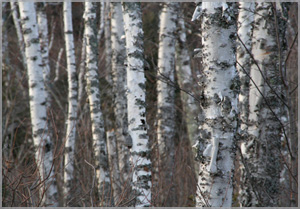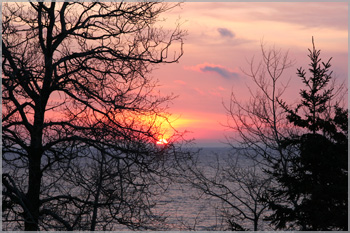I came in late, just in time for the last few minutes of the first plenary session with Rachel Remen where the whole auditorium was vibrating; everyone in it singing softly as one voice. An auspicious beginning, as it turned out.
Rachel was followed by Maria Durazo, president of the Hotel &
Restaurant Employees Union’s Local 11, who reminded us that the organic
food industry also uses immigrant labor, and doesn’t necessarily treat
their workers, both legal and un-documented, any better. Next, Spencer Beebe, founder of Ecotrust, talking about building a new nation – "Why not call ourselves Salmon Nation?", he asks – based on bioregions governed by nature, on principles much longer-lasting than those of politics.
Beebe was followed by the beautiful Sophia Quintero, a young woman who is helping to transform her world through popular culture. She founded ChicaLuna to support girls of color in developing film-making skills, & because every movie is a political movie, she gives them a solid foundation of political & feminist analysis skills so the films they make can reflect their own values, and not just reinforce the values of the dominant culture that so often demeans them.
The last plenary of the morning was presented by Paul Hawken who was introduced by Kenny Ausubel as a man who has been a human lighthouse to many of us – I know I have been following his thinking ever since he was with Erewhon – a natural foods company he started back in Boston; was it really the very first natural food company? – where I worked with him back in the 70s. Paul is a visionary thinker in the truest sense, but he has always been firmly grounded in the practical, writing books like The Ecology of Commerce and founding many profitable companies including the popular Smith & Hawken gardening supply chain. I lost my pen during his presentation, so I couldn’t take notes, but I was absolutely stunned by what he had to say.
I’m sure I can’t do justice to it… and it might not sound so unusual if you don’t know his history… but Paul shared that he has come to realize the environmental movement has to be based in a spiritual ethos; that to be viable it has to embrace the social justice movement so that the two become one. He said that in fact the environmental movement grew out of social movements that later went on to become religions, like Taoism & Confucianism, and that human beings are born with an altruistic instinct – that the need to care for others is hard-wired into us.
The implications of Paul’s talk are still reverberating in me, and I for one am going to download his words from the Bioneers site – share them with my partner and listen to them again myself.
—-
This last day was a very different kind of energy for me. Things were happening slower, and a lot more went on, somehow. Perhaps because I was experiencing more outdoors… I took my lunch outside, and after eating laid back on the grass, looking up at the thick tangle of leaves above me, feeling the sun & warm breeze on my skin.
After lunch, I was drawn to a rapper who was on a rough stage in the center of the plaza with a mic in his hand, calling out rhythmically to the crowd "There’s only one God… He’s got a lot of names, but there’s only one God… He’s got a lot of names." This guy, whose MySpace name is GoodFelllow (yep, three ‘l’s) was very good, and he reminded me of my friend Jahan, who is also a rapper that draws on spirituality for his poetics. I hope the two meet, and they take the world by storm. (I just looked up GF and found that he calls himself a ‘Troubador of Divine Bliss’! 🙂
My first post-plenary session after lunch was wonderful, if a bit strange. It was supposed to be an interactive session on EcoArt, with about 30 artists taking part. Apparently they’d only expected 30 additional people because there were 60 chairs set up in a tight circle in the front of the large tent where we were meeting. The trouble was there were more like 90 people in the room, and the circle didn’t expand, so a lot of of us were sitting in rows looking at a solid wall of backs. Still, there were some fascinating artists there and I heard some wonderful words spoken, even though for the most part it was impossible to know who was speaking.
Answering a question about the kinds of tools they use, one artist said that he thinks of his art as a bridge between those things he carries deep inside him and their manifestation in the external world, and therefore he sees his heart as a primary tool for art-making. Another said that in her experience photography is a tool to bring people into the moment and produce a sort of meditative experience. Helen & Newton Harrison were there, and Nelson said they often use what he calls an eco-flip; they will take something assumed, penetrate the belief or metaphor surrounding it, and then ‘flip’ it – taking their design in a whole new direction. Work on ‘flood control’, for instance, might become a piece with ‘spreading of the waters’ as a central theme. Their creative scope & vision is amazing; I would have liked an entire session focused just on them!
I think I might have saved the best for last, however, because I was truly entranced my my last session, and could have stayed there forever – I didn’t want to leave. It was David Abram, who I absolutely adore because of the pleasure I got from reading Spell of the Sensuous, and the ever-interesting Susan Griffin, in a session called Re-visioning the Language of Environmentalism.
They talked about the extremely transformative metaphoric power of words; their ability to change experience & therefore reality. David said there are ways of speaking that enhance the reciprocity between words and our bodily senses & there are those that stifle this connection and tend to make us live more in our heads, keeping us aloof from our bodies and the earth we live in.
Susan brought up the old split between the spiritual and the material, and how the pejorative way we use the words and association of ‘matter’ effects us and cuts us off from our bodies, each other and the earth. She talked about the need to find a language that can hold the grief
that is commensurate with our times, and David said perhaps this is one
of the reasons for our abstractions, and why we are all in flight from
a body which we fear cannot hold all the grief we know is there.
We talked a bit about the abstraction of a phrase like ‘global warming’ – David prefers the term ‘planetary fever’ because it’s really more like a fever, this world-wide malaise we are all experiencing, where there are extreme oscillations between overwhelming heat and the ‘shivers’ that follow.
Then the phenomenon that is David Abram started to wax poetic – he talked about gravity as eros, the definition of gravity being the natural force of attraction exerted by one body upon another. What if, he reasoned, our every step on earth was a conscious enactment of our love affair with earth? How would knowing this effect the way we experience the simple act of walking?
He impressed upon us the need to rejuvenate oral culture – to language the local culture of which we are part without always needing to bind the words down to paper. Instead, he invites us to share our words, so that you can hear the breath behind them. Speech is shaped breath, he reminds us, and it is the air that carries your words to my ears. Air is the mystery we live in, where all the voices of the ancestors live… we are immersed in this atmosphere, like fish in the sea.
Air is a part of earth – sometimes he calls it Eairth to make this clearer – and when we connect with it in our speech, we remain grounded rather than withdraw into abstraction. What if our minds are not ours, he asks, but the earth’s? If that is so, we are all immersed in the mind of the earth – the air.
Each of us lives in the mystery, in direct relationship to the elements around and within us, & each of us has our own creative access to the ‘real’ of our bodies. He invites us to find the ways & begin speaking from our own skin, our hearts, our bones. Language is just a set of poetics, he says – get in there and play! Be creative!
We need to develop speaking that is contagious, he went on, language that can spread through
the culture like a virus. We all need to become poets, in the sense of
speaking beautifully –
luring people with our words into their senses and skin, helping them
to wake up in their bodies.
See what I mean? 🙂




Welcome!